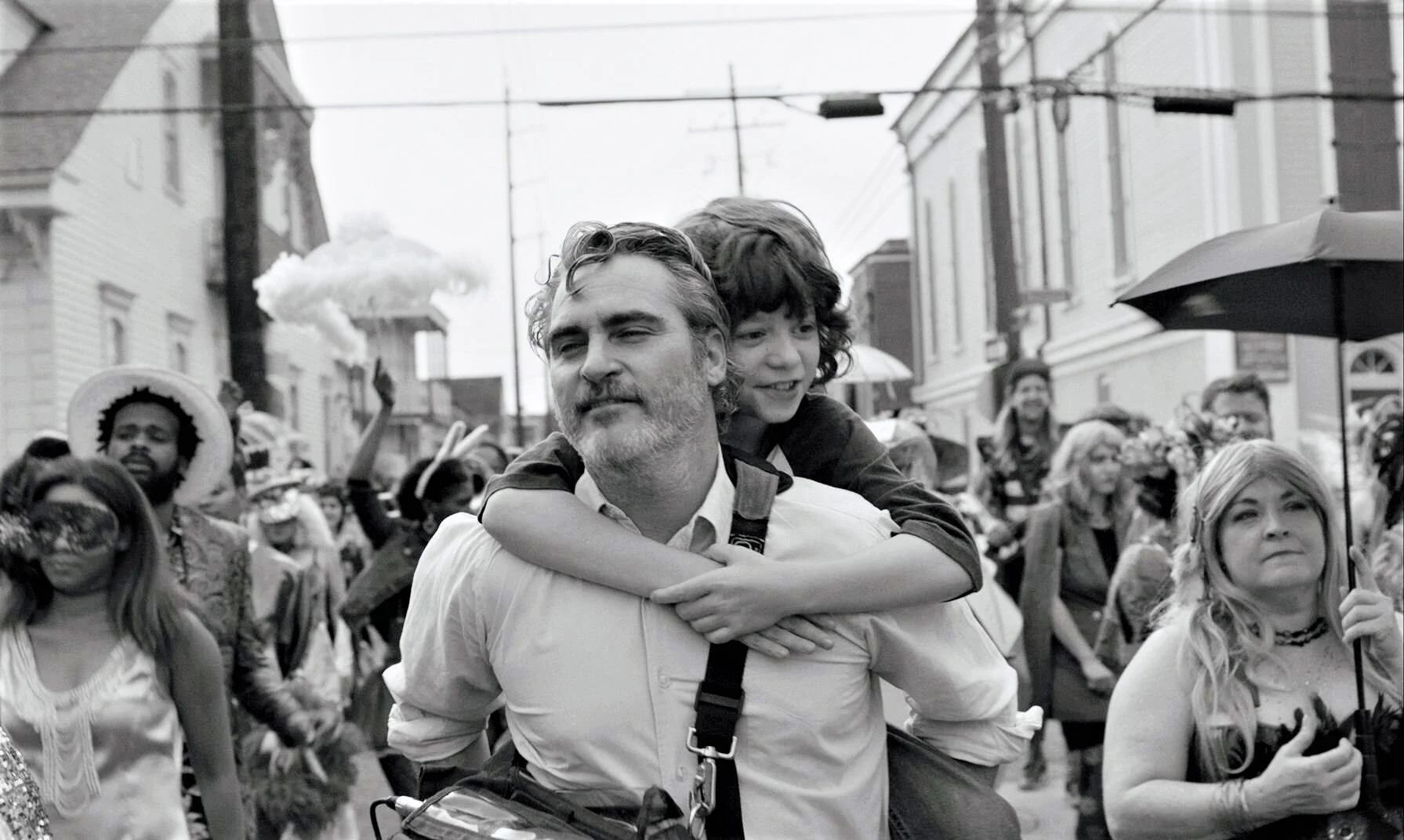C’mon C’mon
Joaquin Phoenix reveals a new side to his palette in a black-and-white indie about a radio journalist on a road trip with his nephew.
It was with his second feature, Beginners made in 2011, that Mike Mills turned to his own family history as the inspiration for films which he wrote and directed. Central to that piece was the story of a man coming out as gay at the age of seventy-five just as Mills’s own father had done and the telling of it on screen was handled with remarkable sympathy and skill. Next up was 20th Century Women (2016) inspired by the life of his mother, but I was taken aback to find that the approach adopted so successfully in Beginners had been set aside for a more stylised mode. Now we have C’mon C’mon for which he is said to have drawn on his relationship with his son and this is again material which calls for an intimate, naturalistic tone as the cast do indeed seem to recognise. Unfortunately, Mills chooses to bring to it a style somewhat comparable to that of its immediate predecessor and for me that proves fatal.
C’mon C’mon has three central characters. There is Johnny (Joaquin Phoenix), a radio producer working on a project which involves interviewing teenagers about how they see the future, Johnny's sister from whom he has become rather estranged (that’s Viv played by Gaby Hoffmann) and his nine-year-old nephew, Jesse (Woody Norman). Johnny is something of a failure when it comes to relationships (he has just broken up with his girlfriend) but when Viv asks him to travel to Los Angeles in order to look after Jesse he agrees. She makes the request because her husband, Paul (Scoot McNairy), is bipolar and is now in such a serious state that she needs to leave home and be with him during this crisis. Johnny flies in from Detroit to help out and then, when his work calls him to the East Coast and Paul's condition delays Viv’s return, he takes Jesse with him to New York and, later still, to New Orleans.
Jesse is a difficult child, precocious and knowing for one so young but also given to eccentric games such as pretending that he is an orphan child being looked after by Viv. His mother is devoted to him but she's also frequently driven mad by his behaviour and on one level C’mon C’mon is a sensitively aware account of the demands inherent in parenting. On the other hand, it shows how Johnny through travelling around with his nephew in time develops a bond with him and is thus encouraged to relate more meaningfully and become more engaged. There is here a distant echo of Paper Moon (1973) and the material in its quiet reflection of real life issues certainly has appeal. It is helped too by its cast with Phoenix at ease as the vulnerable, essentially sympathetic Johnny and Woody Norman remarkably adept for such a young player (his role as Jesse requires this English boy to speak with an American accent and he is on the screen quite as much as Phoenix). Even so, it is Gaby Hoffmann as Viv who makes her character the one that feels most deeply rooted in everyday reality.
The problem with C’mon C’mon is that Mills in countless ways favours touches of stylisation and creates a film which is self-conscious in its attempts to be arty. Some examples of this may appear small, but taken together they stand out to a surprising degree and, despite the efforts of the cast, they exclude the simple, direct naturalism required. To take one small detail, the film contains readings (aptly enough when Johnny reads to Jesse when he goes to bed) and elsewhere we see Johnny perusing books on his own although even then we still hear the words spoken. In most of these cases Mills quirkily opts to have the title and author written up on the screen over the image. Drawing attention to itself in equal measure is music that is used in the film with both Mozart (his Requiem Mass) and Debussy being drawn on more than once for no obvious reason. Several scenes feature phone conversations but what is being said is often accompanied by images briefly illustrating the words we are hearing or else supplying unexpected flashbacks. Mills has also chosen to have the film photographed in black-and-white and, as ever, Robbie Ryan's photography is very distinguished, yet in this instance it draws attention to itself as an arty device. In the circumstances, the frequent inclusion of the interview footage recorded by Johnny which features actual youngsters is not the most distracting element. Nevertheless, these documentary viewpoints don’t add enough to feel necessary and they draw out the film. What could - and should - have been an involving and touching personal story is smothered by the way in which it has been presented. Of 20th Century Women I wrote “the actors are fine and in no way to blame”. That applies here too.
MANSEL STIMPSON
Cast: Joaquin Phoenix, Woody Norman, Gaby Hoffmann, Scoot McNairy, Molly Webster, Jaboukie Young-White, Deborah Strang, Sunni Patterson, Keisuke Hoashi, Brey’on Shaw, Gita Reddy.
Dir Mike Mills, Pro Chelsea Barnard, Lila Yacoub and Andrea Longacre-White, Screenplay Mike Mills, Ph Robbie Ryan, Pro Des Katie Byron, Ed Jennifer Vecchiarello, Music Bryce Dessner and Aaron Dessner, Costumes Katina Danabassis.
Be Funny While You Can/A24-Entertainment Film Distributors.
110 mins. USA. 2021. US Rel: 19 November 2021. UK Rel: 3 December 2021. Cert. 15.


